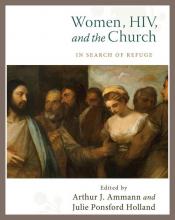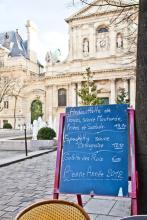Church

It’s easier to guide the vision and mission of a church you start. It’s another thing to help a 135-year-old congregation reimagine what it means to be a downtown urban church in a world that has changed dramatically all around it. At Milagro, the church we founded in our living room some nine years ago, we set the course for what we wanted that community to look like: a refuge for the spiritual walking wounded, safe haven for questions, doubt, and a culture of mutual encouragement, support, and accountability that would allow people to explore their own relationship with the Divine. We have since set that community free and already, it is becoming something different.
As well it should.
Now we find ourselves at First Christian Church in downtown Portland — a different animal entirely. In some ways, the two communities are very complementary, in that one has what the other tends to lack. But we’ve discerned that, first and foremost, our job is to help cultivate a spirit of radical openness and welcome. But what does this mean, and how do we even begin to change the makeup of an institution that has exited for more than five generations before us?
Sometimes, it’s the simplest things that say the most. We had a tradition at Milagro of “mugging” people when they came for the first time. This meant one of our hospitality stewards (AKA, “muggers”) would approach them and give them a coffee mug filled with candy and some information about the church. With First Christian, however, most people know we’re here; the bigger question lingering in the public mind is why.
In this case, instead of a brochure describing programs or institutional history, Amy included the welcome statement that follows, which she borrowed and adapted from a Catholic community.
LAST FALL, I (Anne Marie) decided to take a break from the church I had been attending to check out a nearby Episcopal service with one of my housemates, Joshua. I had no idea at the time that this might turn into a permanent switch. My Baptist, Anabaptist, and evangelical roots don’t quite explain what drew me to St. Stephen’s Church that Sunday, but I remember the thought that kept going through my head: I need to take Communion.
For a number of reasons, I had been feeling apathetic toward Christian faith. I needed something official and visceral to cleanse me of the growing indifference I felt. The thought entered my mind: I need some bread and wine, because if my own prayers can’t kindle the spirit of Jesus within me, then I’ll get him in there by force. I hoped that partaking in the real-deal-flesh-and-blood would allow me to return to my own church in peace.
I can’t say that the Episcopal service that day cured me of all my doubts and frustrations about Christianity, but I did find meaning in the liturgy, rituals, and traditions that continued to sustain me in my first year in a new city. As Joshua and I continued to attend St. Stephen’s, we each reflected on what we, as young adults, are looking for in church and Christian community.
Church advertisements often focus on how to keep young people “engaged,” and there are countless new books about why young people are leaving the church. Statistics show decreased church attendance among those in our generation, and while this may be cause for concern, I’m not too worried about it. I’m glad that churches and denominations are interested in engaging young people, but so often this well-meaning desire is rooted in fear and anxiety about the future of the church. Is Christianity becoming obsolete? Will the church die away?
News flash: Christianity isn’t going anywhere. But churches and denominations may have to adapt—and not necessarily the way they’re doing so now—if they are to survive.
As 20-somethings who’ve left the cocoons of family and college for our first forays into the “real world,” we have two basic conclusions about what we are looking for in church communities.

The estranged son of a Kansas pastor famous for protesting the funerals of soldiers and AIDS victims has condemned his family’s plans to picket the funerals of the 26 people — including 20 children — who were killed when a gunman stormed a Connecticut elementary school.
In the wake of Friday’s massacre in Newtown, Conn., members of Westboro Baptist Church in Topeka, Kan., posted Twitter messages saying they would picket outside Sandy Hook Elementary School in Newtown. The messages provided no information on the time of the planned picketing.
"Westboro 'God hates Fags' Baptist Church is planning to picket at Sandy Hook, to praise 'God's judgment,'” was posted by Margie Phelps, the daughter of Westboro leader Fred Phelps Sr. Her sister, Shirley Phelps-Roper, tweeted Saturday that the group would "sing praise to God for the glory of his work in executing his judgment."

When it comes to sharing the Eucharist among faithful but separated Christ followers, I wonder if Jesus is waiting for the churches simply to be the Church?
For the sake of this uncommon meal and the One who gives himself to us in it we can partake together, not on the shaky foundation of our present tragic divisions but on the firm ground of our promised unity by joining now in the Great Feast we will celebrate with him forever in eternity.
It is, after all, his table. It is a table set not only in the presence of our enemies in this world but set also in the unseen realm of Christ’s anticipated future rule that in a mystery comes to each of our houses of worship simultaneously as we gather in hope to encounter his resurrected person, week in and week out.
In this scenario, we remain mindful and respectful of our present divisions yet act on the coming unity we know is ours now by promise because no prayer of Jesus, certainly not his prayer that we be "one," can ever fail (John 17).

I’ll preface this piece my saying I know I am making some broad generalizations based on gender, and that there are always exceptions to every trend. But despite that, I do think there are some cultural trends that can offer us some useful insight.
Anyone who has been paying attention has noticed that, of those left within the walls of most churches, the majority still hanging in there are women. Some, like the advocates of so-called Masculine Christianity, see this as a crisis. The Christian faith and its symbols are becoming softened, feminized, compromised into being something other than what they were meant to be.
Granted, when you take a faith whose principal authors historically have been men and then place that same faith in the hands of women, some things will inevitably change. Personally, I welcome the exploration of other, feminine expressions of the divine and values such as embodied spirituality that many female Christian leaders value. But aside from these assets, I think that women bring something far more critical to institutional religion.
Without them, it may cease to exist.

EXCLUDING WOMEN from leadership weakens the commitment and contributions of churches, theological institutions, and the global church in their participation in God's prophetic mission. It translates to women's priorities and specific needs being inadequately articulated and under-resourced.
For instance, matters of sexuality, reproductive health education, and justice are hardly ever discussed in churches or theological institutions, except when governments want to legalize abortion. Similarly, little attention is given to maternal health care despite the high rates of maternal death and infant mortality in Africa. It is not enough for churches to focus on baptizing children, blessing them, and welcoming them into the house of God when they neglect to care for their well-being from the time they are in their mothers' wombs, especially now that so many children are born HIV-infected. Responsible and healthy sexuality, childbearing, and parenting are matters that require full engagement of both women and men, and the churches should be at the forefront of providing much-needed education.
Women have been left to shoulder the burden of the times: preventing HIV transmission, facing HIV-related stigma, handling deaths, and addressing the myriad other adverse impacts that the HIV pandemic has created. Similarly, in the Circle of Concerned African Women Theologians, of which this author is a founding member, women have provided leadership in naming theological, ethical, cultural, and religious beliefs, as well as harmful practices and leadership styles, that fuel gender disparity, social injustices, and the spread of HIV in religious communities and in society at large. The Circle also has endeavored to provide theological and ethical reflections that are empowering and transformative to the behaviors contrary to God's will for how women and men relate to each other in families, religious contexts, and everyday life.

WANT TO PUT money to work for the common good? Your congregation—large or small—has more to invest than you might expect. Here are three questions to get you started.
1. Where does our church bank? "Many churches choose a bank based on proximity to the church or the church treasurer's home," Andy Loving says, but it doesn't have to end there. Approach the finance committee and say, "We want to put our money somewhere that has implications for what we value as a church," suggests Loving. Find a bank that empowers economically depressed areas through brick-and-mortar locations and socially responsible loan practices.
2. Does the bank we're considering provide options for the poor? Where are the branches located? Does it loan to people or businesses who typically don't get approved by mainstream lenders? One institution Loving recommends is Self-Help Credit Union in Durham, N.C., which has locations throughout the state—and also a web-based interface convenient for members outside the area. Another place to hunt for justice-oriented banking is the National Community Investment Fund website, www.ncif.org, which allows you to search by location and banking practices.
"WE DON'T WORK toward justice; we bring about justice through systemic change," says Rev. Cindy Weber, with a fierce and loving smile, when asked how her congregation, Jeff Street Baptist Community at Liberty, seeks justice through reaching out to the community. There is no pride or bravado in her statement, but a firmness that comes from more than 20 years of pastoring a small, community church that actively helps bring about God's peace on earth.
Jeff Street, located in Louisville, Ky., has an active membership of approximately 100 people—a David-sized congregation compared to many mainline or mega-churches. However, the creativity, dedication, and passion of the church's members, manifested in hospitality programs for and with the homeless, have made a giant-sized impact on local economic justice issues. And the congregation didn't stop there; as part of a coalition of area churches, Citizens of Louisville Organized and United Together (CLOUT), the church has made an impression with policy work and community organizing on the state level as well. Jeff Street's commitment to empower poor people has even reached internationally: Members have invested in Oikocredit micro-lending programs to the tune of $180,000.
"We are a church that knows the difference between justice and charity, and also between charity and hospitality," says Weber.
Jeff Street, as members call it, started as the Jefferson Street Baptist Chapel, a worship community that had been meeting for decades at Louisville's Jefferson Street Baptist Center, an outreach to homeless people that is a mission of the Southern Baptist-affiliated Long Run Baptist Association. But when the congregation's head pastor left in 1987 and it promoted Rev. Weber from associate to interim pastor, the move touched off a four-year struggle with the Center's parent organization. The Long Run Baptist Association refused to recognize Weber's leadership because she is a woman—even though, at the time, she was also serving as director of the center. In 1991, the year the congregation installed Weber as permanent pastor, it was told to leave the center. The church kept the name "Jeff Street"—the shortened moniker by which Jefferson Street Baptist Center was known in the nearby Clarksdale housing project and environs—and moved a couple blocks south, into a rehabbed former machine shop on Liberty Street.

“Your body is a wrapped lollipop. When you have sex with a man, he unwraps your lollipop and sucks on it. It may feel great at the time, but, unfortunately, when he’s done with you, all you have left for your next partner is a poorly wrapped, saliva-fouled sucker.”
I cringed behind the wheel, appalled at the quoted words I heard coming from my audio copy of Half the Sky as authors Sheryl WuDunn and Nicholas Kristof discussed this statement uttered by Darren Washington, an abstinence educator, at the Eighth Annual Abstinence Clearinghouse Conference.
Sadly, it wasn’t too far off many Christian messages I’ve received about sex.
But let’s go back to the beginning.

If we try to mold faith into something more certain than simply faith, it becomes something else. A crutch, perhaps, or a drug. So how or when does this happen?
It happens when someone is suffering and we tell them that everything happens for a reason. In the bigger picture, this is that opiate of certainty and assurance being cast over all the chaos, suffering, and doubt in an effort to keep it all tied up neatly in a religious package. But what it creates beneath the surface is a bastardized image of a God who sits in the Great Beyond, plotting out our fortunes and misfortunes, causing loss and heartbreak in our lives for some greater unknown plan. This makes us no more than so much collateral damage in some narcissistic divine game.
Is that really the God we believe in?
IN SPRING 1986, a group of Italian activists led by Carlo Petrini launched a protest against the opening of a McDonald’s near the famous Spanish Steps in Rome. This protest marked the origin of the Slow Food movement, which has spread over the last 26 years to more than 150 countries.
Following this Slow Food effort came a host of other Slow movements—Slow Cities, Slow Parenting, Slow Money, and more—that collectively raise opposition to the speed and industrialization of Western culture. Slow movements are beginning to recover what we have lost in our relentless pursuit of efficiency. Many Christians have been challenged by these Slow movements to consider the ways in which our faith has begun to move too fast as we make sacrifices to the gods of efficiency.
This quest has sparked a renewed interest in the joys of sharing life together in local congregations and has intensified into a growing conversation—rather than a movement—called Slow Church. Slowness itself is not a cardinal virtue of Slow Church, but rather a means of resisting the present-day powers of speed in order to be faithful church communities.
The biblical vision of God’s mission in the world is God’s reconciliation of all creation (see, for example, Colossians 1:15-23 and Isaiah 65:17-25). But too often we narrow the scope of our faith and ignore the massive damage that incurs. Some Christians reduce the faith to four easy steps to stay out of hell, others to a set of techniques for growing a large church, and still others to a political ideology (of the Right or the Left). Christianity has also been reduced by some to a feel-good spirituality that has little or no bearing on the rest of our lives or in the public square.

NAIROBI, Kenya -- Church leaders are pressing the Kenyan government to scientifically test herbal medicines that are used by millions to manage and treat diseases, saying the nontraditional therapies could be putting patients' health at risk.
The leaders say HIV/AIDS patients and others suffering chronic conditions are widely using the medicines, whose efficacy is unknown.

A friend of mine forwarded a link to a recent Huffington Post article about the most and least religious cities in the United States. Interestingly – but hardly surprising – you have to scroll waaaay down the list to find my current city of Portland, Ore.
“Looks like you have your work cut out for you,” he said. He’s right; I’ve met folks here who work in churches that tell people they work at a nonprofit when asked what they do, leaving the bit about the nonprofit being a church until they get to know each other better. And of course, we knew this when we came to the Pacific Northwest.
In fact, that’s part of what made me want to be here.
For some, there is great appeal in coming to an “unchurched” community, mainly because of the notion that this means there are that many more people in need of saving. And while this may or may not be true, there’s a lot of presumption that goes into saving those without religion, while assuming those who claim a faith are the ones to do the “saving.”

OK, church folks. Fasten your seat belts. But don’t hunker down.
There’s a new study out this week that shows that one-in-five Americans has no religious affiliation. Not Baptist, not Catholic, not Lutheran, not Jewish, not Muslim.
For those of us in the world of organized religion, this just adds more data to a trend we have seen accelerating over the last decade.
In 2007, about 15 percent of the adult population in the U.S. described itself as unaffiliated with any religion. In a comparable survey done this summer and released on Tuesday by the Pew Research Center’s Forum on Religion and Public Life, the number hit 20 percent. And if you just focus on those under 30, the religiously unaffiliated constitute one third of that group.
Among those of us who are professional religious types, this is the kind of data that can prompt a lot of gloomy introspection about relevance and a lot of finger pointing at those who are not interested in the same kinds of religious expression that we are.
Let me suggest there’s a less gloomy and less judgmental way to think about this data.

I used to be in a fantasy league, but the fanaticism of the whole thing wore me out. The guys would gather online for an evening-long draft event, debate rules ad nauseam, and haggle over trades through the wee hours. I considered myself to be a fan, but these guys had practically made, well, a religion out of fantasy sports.
I was reading a piece today by Bruce Reyes Chow about what we Christians might learn from fantasy sports, and it got me thinking. One of the most interesting things being in the fantasy league did for me was that it totally changed how I watched the games. I would turn on games I never would have had interest in before, just to see how my selected running back performed. I even found myself rooting against my own favorite teams once in a blue moon when it served my fantasy team and didn’t affect the outcome of the actual game.
The whole experience drove my wife crazy, partly because of all the time it took, but also because the way I engaged sports was so different that, even if we were watching the same game, it was as if we saw two completely different things.
We’re in the middle of a similar kind of shift in the west with respect to organized religion. While folks within the walls of church may be intent primarily on keeping the institutions placed under their care alive, a growing majority of people outside the doors don’t really care about the denominational logo over the entryway, the name inscribed on the stone sign by the street or the long, rich history of all the congregation has meant to the community.

You can tell from its menu whether a restaurant expects to serve tourists, locals or regulars.
At a tourist-centered eatery like those near Times Square, the menu typically is huge: many pages, difficult to scan, sometimes difficult even to hold. There's something for everyone and it's designed to please customers who are strangers.
A restaurant catering to locals will have a much leaner menu, maybe just four or five items in each category. They will all be of a certain type—no words like "Asian fusion" to disguise lack of focus. If the joint is Korean, it will serve Korean.
A third and much rarer type is the restaurant that offers just one multi-course meal each night. Regulars go expecting to be served the chef's whim of the day, not handed a long menu.
When customers are strangers, the owner must imagine what will please a patchwork of German tourists, Chinese tourists, families from Iowa, young techies on the prowl, and marketers in town for a convention.
The better an owner knows the customers, the more focused the menu can be. If not the actual customer, at least the type of person who will come in.
Voting isn't all that different. When politics is local, candidates tend to know their people or at least know their interests, worries and hopes. This is the level at which democracy tends to work best. Leaders know their people, people know their leaders, and known interests are at stake.

In the middle of the 16th century, Catholic bishops and theologians met sporadically in the city of Trento in northern Italy to discuss the church's response to the Reformation. Over the course of 18 years, the Council of Trent produced documents correcting abuses like indulgences and other corruption.
In 1564, the council ordered that some naked figures in Michelangelo's massive "Last Judgment" fresco in the Sistine Chapel be covered up as a result of the council's dictate that "all lasciviousness be avoided; in such wise that figures shall not be painted or adorned with a beauty exciting to lust."
It will be difficult for critics to compare Michelangelo's nudes with the ones photographed by the Rev. John Blair. Just after the Episcopal Diocese of Missouri launched an investigation of the St. Louis priest, many of his photos of nude models were removed from the Internet.
And yet the diocese's disciplinary board, whose members will decide if Blair's photography constitutes sexual misconduct, will try to answer the same question as Trent's participants 450 years ago: How does the church recognize the beauty of art that depicts God's creation — the human form — without seeming to condone "a beauty exciting to lust"?

Family Research Council President Tony Perkins said Sept. 12 that conservative Christians are growing more enthusiastic about GOP presidential nominee Mitt Romney, and predicted they would show up at the polls in record numbers in November.
"When it comes to the values of family, values of faith, values of freedom, Mitt Romney is a clear choice, I think, for value voters across this country," Perkins said at a National Press Club luncheon two days before his organization kicks off its annual Values Voter Summit in Washington.
Perkins, a Southern Baptist, said evangelical Christians have "significant theological differences" with Romney, a Mormon, but he said the GOP nominee, if elected, would not be asked to head a national church.
"We don't want a national church. We want religious freedom," he said. "I think someone who has been a part of a persecuted religion is going to be even more sensitive to the issue of religious freedom."

As baby boomers start clicking the senior citizen box on travel fares, I want to say a word to my generation and to the one that preceded us.
It is time for us to get out of the way.
I don't mean easing into wheelchairs. For the most part, we're way too healthy and energetic for that. I mean the harder work of relinquishing control.
I see that need most clearly in religious institutions, where I work. But I see it elsewhere, too, from taxpayer "revolts" led by seniors against today's schoolchildren to culture wars that we won't let die.
PASTOR T.C. RYAN spent 40 years haunted by the shadow life of compulsive sexual behavior. Despite the challenges, Ryan never gave up hope of trying to reach the fullest recovery. He tells his story in Ashamed No More.
Compulsive sexual behavior put Tiger Woods into the headlines and made him an object of ridicule, as it has for so many others. In telling his own story, Ryan tears back the curtain to reveal the fuller story of painful realities, challenges, and hopes for those faced with the daunting task of recovery from similar compulsions.
“Those who are not addicted to sex understandably assume that the addict at least experiences enjoyment from the sexual activity, but this is not the case,” Ryan writes.
As Ryan describes it, he was living a divided life. In one arena he was a capable and gifted pastor. In the other he was plagued by shame, self-loathing, and an inability to stop destructive behavior. His extensive explanation of the cycle of addiction, the lies he had come to believe from childhood, the role that therapy and other supportive measures played in his recovery, and his hopes for how the church can become the ultimate 12-step program make every chapter of this book essential.